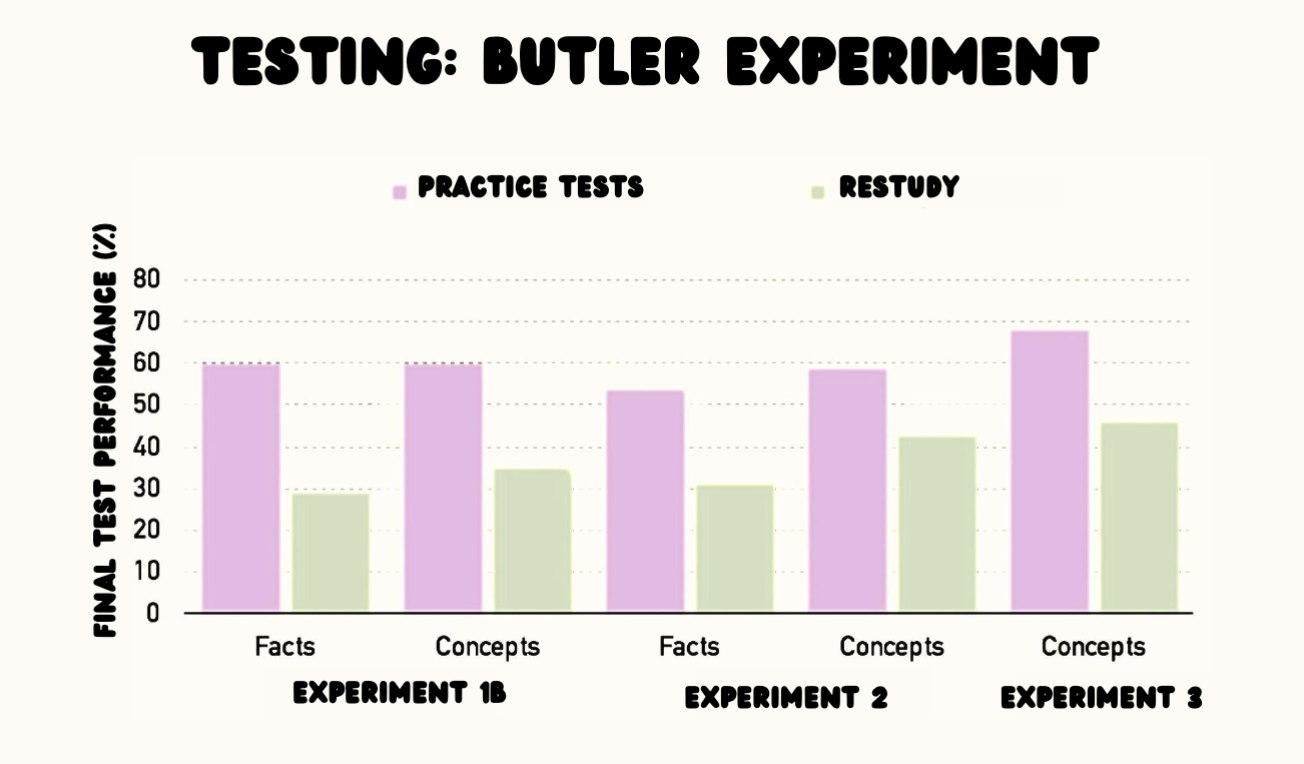Lecture 1 - How to Study + Experiments
1/38
There's no tags or description
Looks like no tags are added yet.
Name | Mastery | Learn | Test | Matching | Spaced |
|---|
No study sessions yet.
39 Terms
Misconception of performance and learning
“Better performance” = more learning
Current performance can be a highly unreliable index of whether learning has occurred
Learning
Long-term, improvement that lasts, visible in ANY context.
The permanent change in knowledge or understanding that is the target of instruction - something we must try to infer.
Learning continued across trials during which the build-up fatigue suppressed performance
Performance
Immediate improvement, visible in a practice context
What you observe during instruction or training.
Substantial improvements in performance across practice or training sessions can occur without significant learning
Maximizing learning
(Desirable Difficulties) Methods that are most effective for long-term learning tend to introduce difficulties that make short-term performance worse.
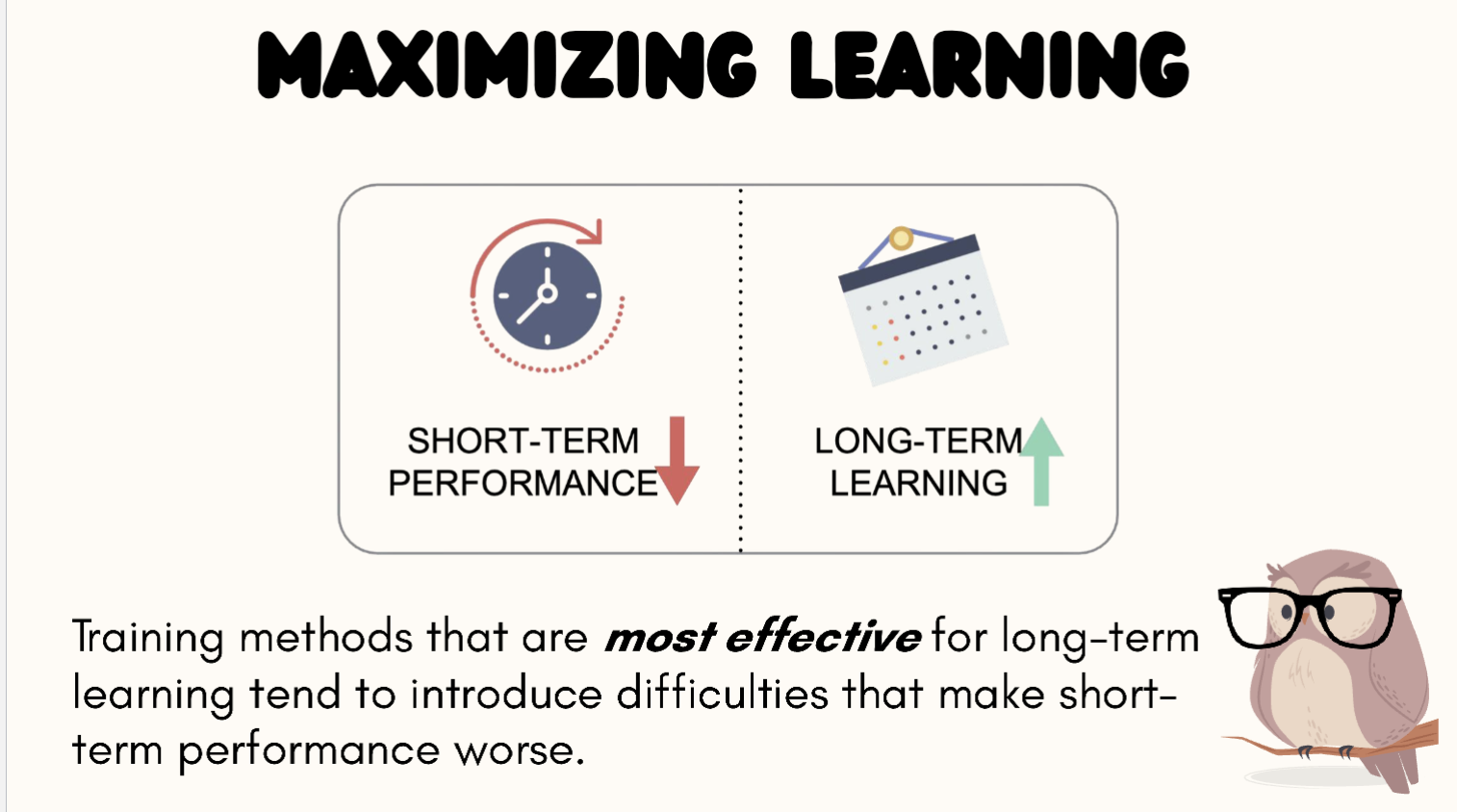
Storage Strength
How entrenched or inter-associated a memory representation is with related knowledge and skills
Retrieval Strength
Reflects the current activation/accessibility of storage strength and is heavily influenced by factors such as situational cues and recency of exposure.
Relationship of Performance to Storage Strength and Retrieval Strength
Assume current performance is a function of current retrieval strength, but storage strength acts to retard the loss (forgetting) and enhance the gain (relearning) of retrieval strength
Conditions that increase retrieval strength the quickest are different from conditions that maximize the increase in storage strength
If learners interpret their current retrieval strength as storage strength, they may prefer poorer conditions to better conditions of learning
Good strats / conditions to increase learning
Vary conditions of learning instead of keeping them constant and predictable
Interleaving instruction separate topics rather than grouping them together by topic (don’t do blocking)
Spacing instead of massing study sessions on a given topic
Test yourself
VARY, INTERLEAVE, SPACE, TEST
Vist
Desirable Difficulties
Desirable because they trigger encoding and retrieval processes that support learning, comprehension, and remembering.
If learning doesn’t have background knowledge or skills to respond to them, they become undesirable difficulties.
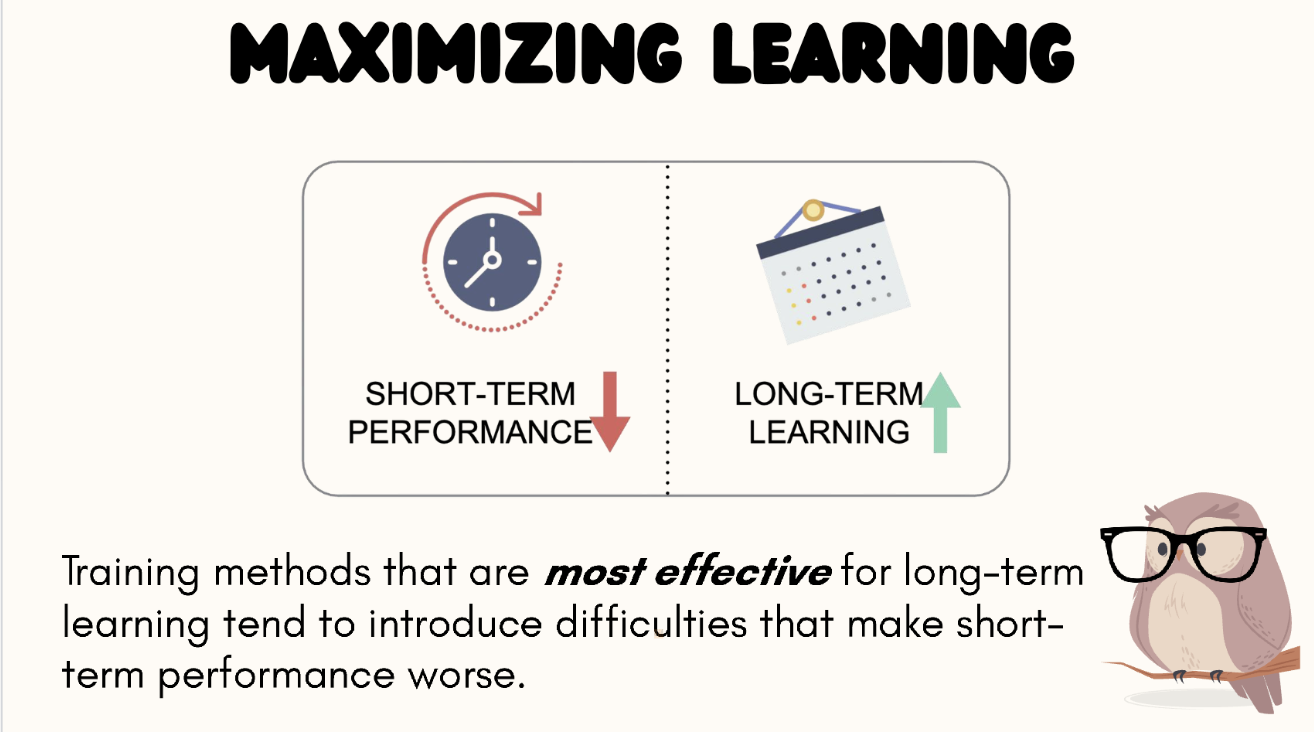
Varying conditions of practice
Constrained conditions = predictable and makes learning contextualized, making it harder for information to be recalled in different contexts / environments.
Benefits of variation
Spacing
Massing (opposite) - cramming, short-term performance
Rapid gains in apparent learning, but info will be less recallable over time.
Spacing effect - benefits of spacing on long-term retention
Good exam performance and long-term retention
Random vs Blocking + experiment
Blocking = can make people may perform better in more immediate performance (apparent learning), but doesn’t help with long-term recall
Blocked practice appears optimal for learning, but interleaved practice actually results in superior long-term retention and transfer of skills.
Other benefits of interleaved learning - enhances inductive learning and performances on delayed tests
Simon and Bjork Experiment
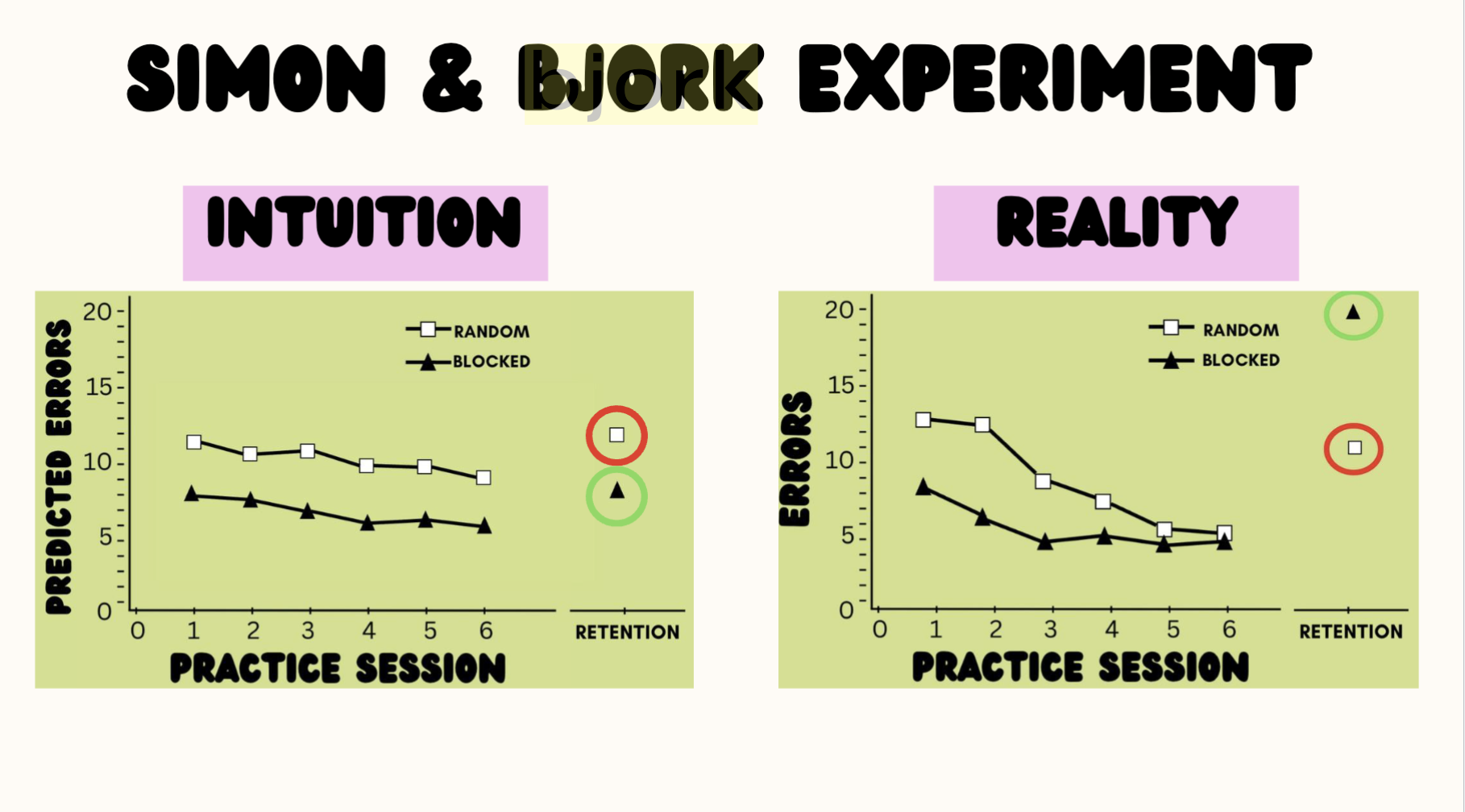
Why might interleaving enhance long-term retention and transfer? (theories)
Forces people to notice similarities and differences among different things, which = better encoding = more retention and transfer
Interleaving forces learners to reload memories
*Forgetting (losing retrieval strength) creates the opportunity for increasing the storage strength of to-be-learned info or skills
When some skill/knowledge is maximally accessible from memory, little or no learning results from additional instruction or practice
Generation effect
Long-term benefit of generating an answer, solution, or procedure vs being presented the answer, solution, or procedure.
Retrieval = powerful “memory modifier”
Tests > rereading
Pedagogical benefits of tests
Better recall in long term
Tests have metacognitive benefits in terms of identifying whether info has or has not been understood or learned
Tests can enhance the effectiveness of later study sessions, even when conditions make it likely that learners may answer incorrectly
Key ideas
Spend less time restudying and more time testing ourselves
Learning requires an active process of interpretation - map new things we’re trying to learn on things we already know
Retrieval acts to modify memory by making info you practice retrieving more likely to be recallable again in the future in different contexts
Sleep and learning
Sleep organizes and consolidates memories from the day.
Successive relearning
Practicing a task until it’s performed correctly and practicing it again until you can do it right during other spaced practice sessions
Evaluate strategies - criteria
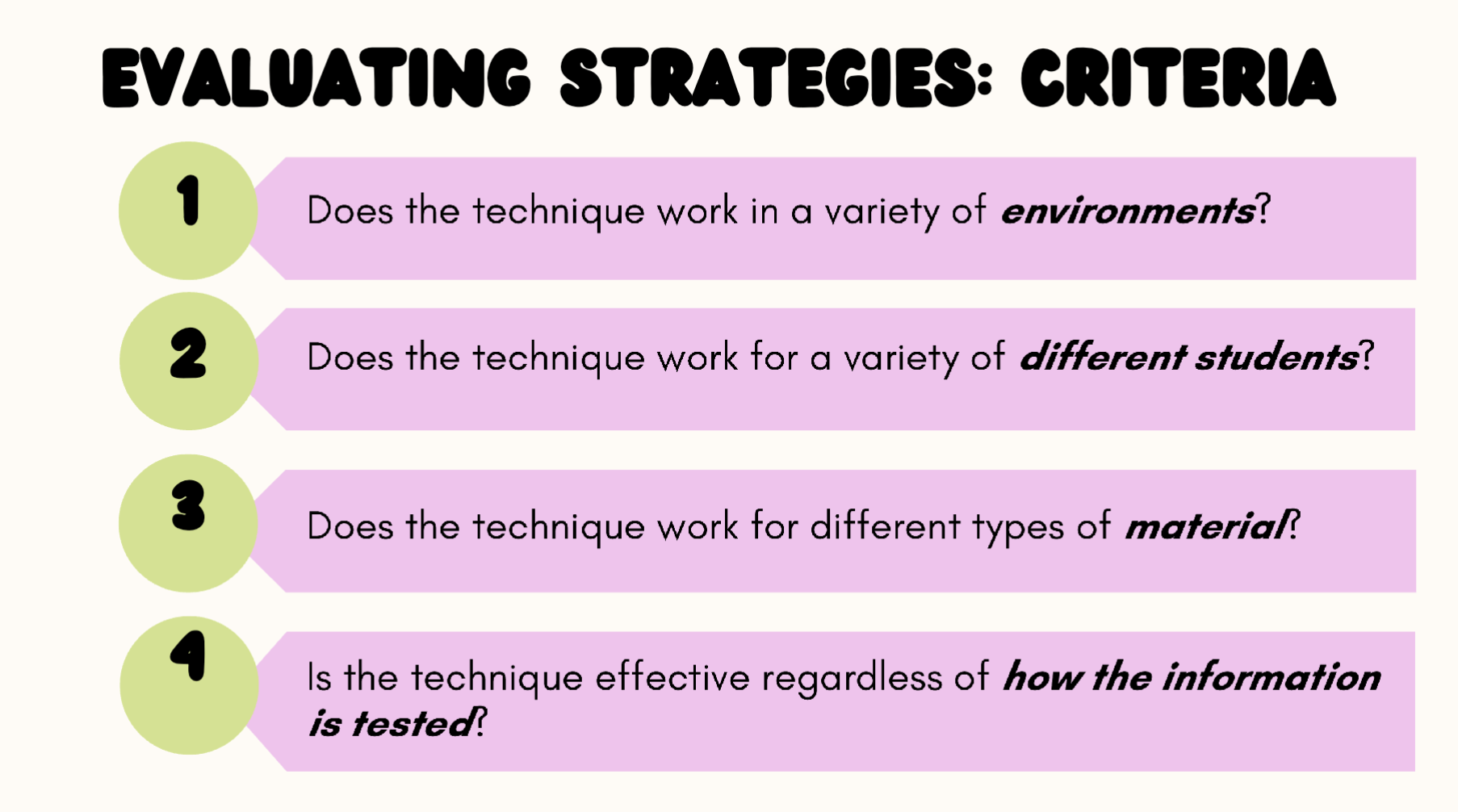
Strategy - highlighting + experiments
Fowler and Barker
3 groups: 1 = reads, 2 = reads and highlights, 3 = reads highlighted
Performed the same on an exam a week later, Highlighting doesn’t help
Peterson (underline)
3 groups: 1 = underlines marked article, 2 = underlines blank article, 3 = reads blank article
Performed the same on basic factual info exam
**Students who underlined did worse on inferences exam
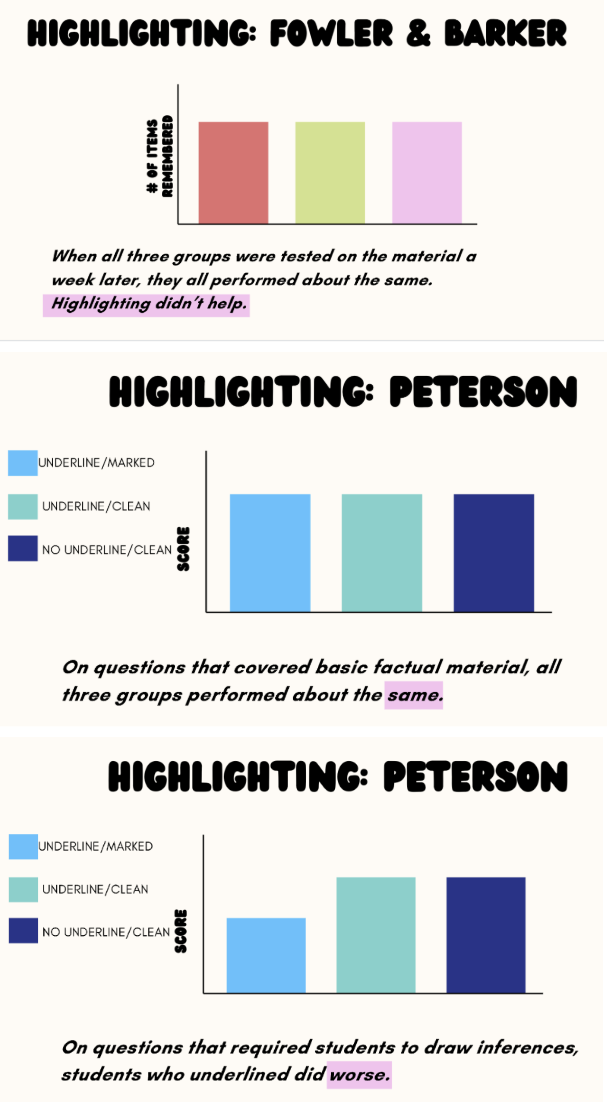
Strategy - issues with highlighting
May cause us to focus on isolated facts and ignore bigger picture ideas
Students may struggle to differentiate the main, central idea from peripheral info / extra details
Strategy - rereading + experiment
Rothkopf
Group 1 - never seen passage before
Group 2 - read passage once before
Group 3 - read passage twice
Group 4 - read passage 4 times
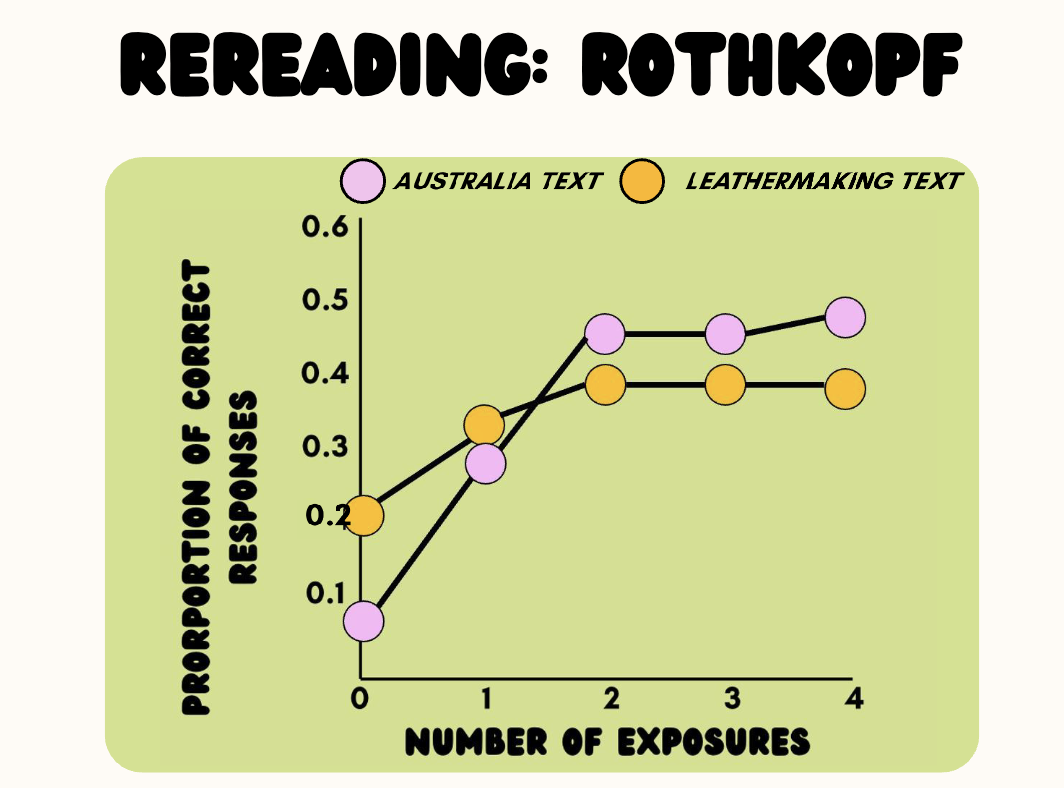
Strategy - problems with rereading
Doesn’t improve comprehension or performance on inference-based questions
Rereading a 2nd or 3rd time doesn’t help
Can trick students into thinking that they’ve mastered the material
Recall vs Recognition
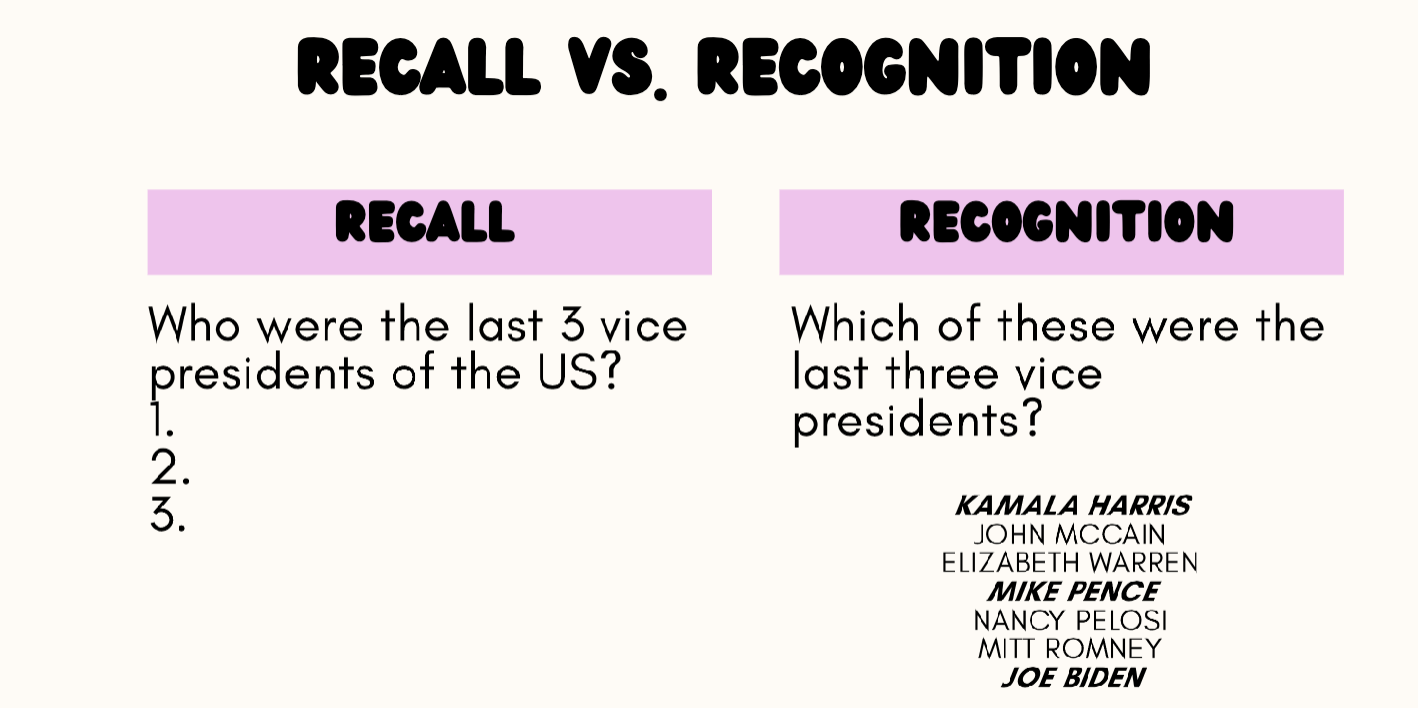
Strategy - generating explanations
Involves coming up with explanations for why concepts are true or how they relate to what you already know
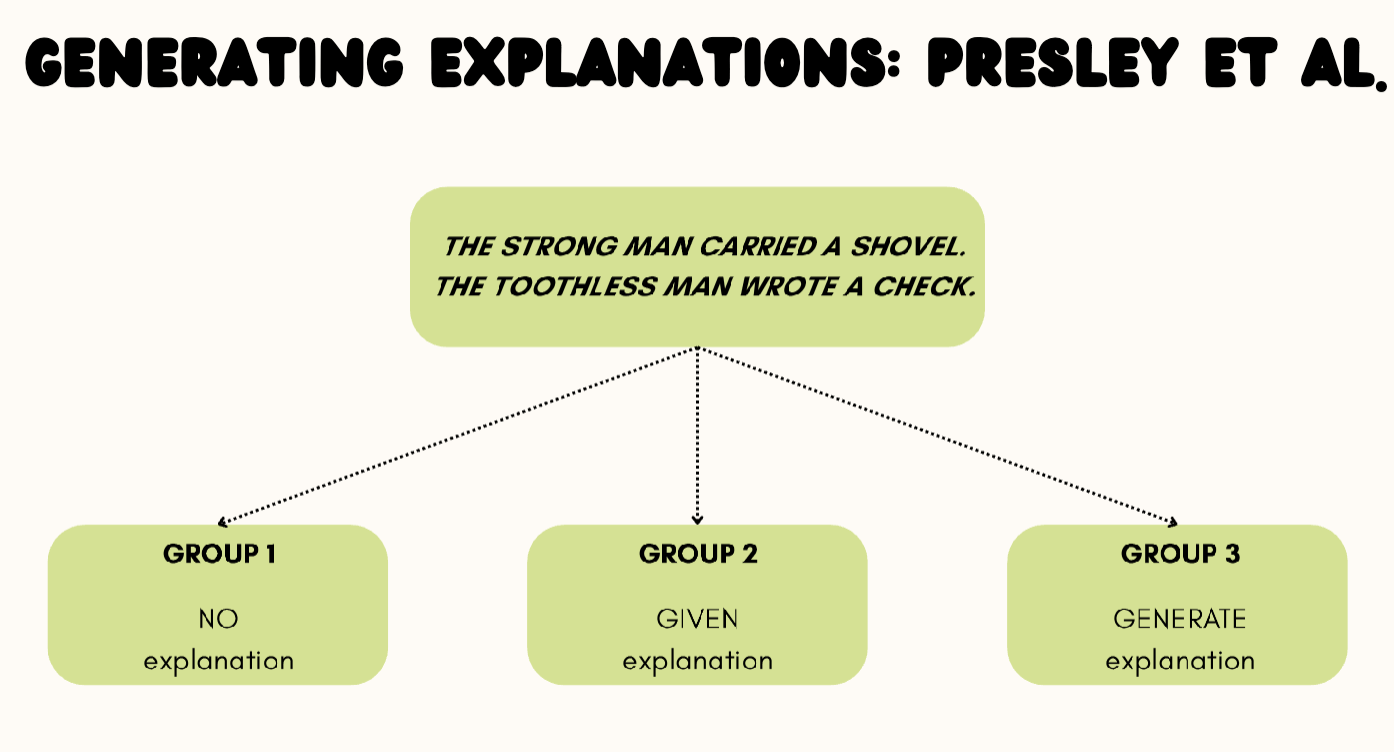
Strategy - generating explanations + experiment
Presley et. al
Groups who made their own explanations performed the best, about 2x as well as the given explanation and no explanation groups
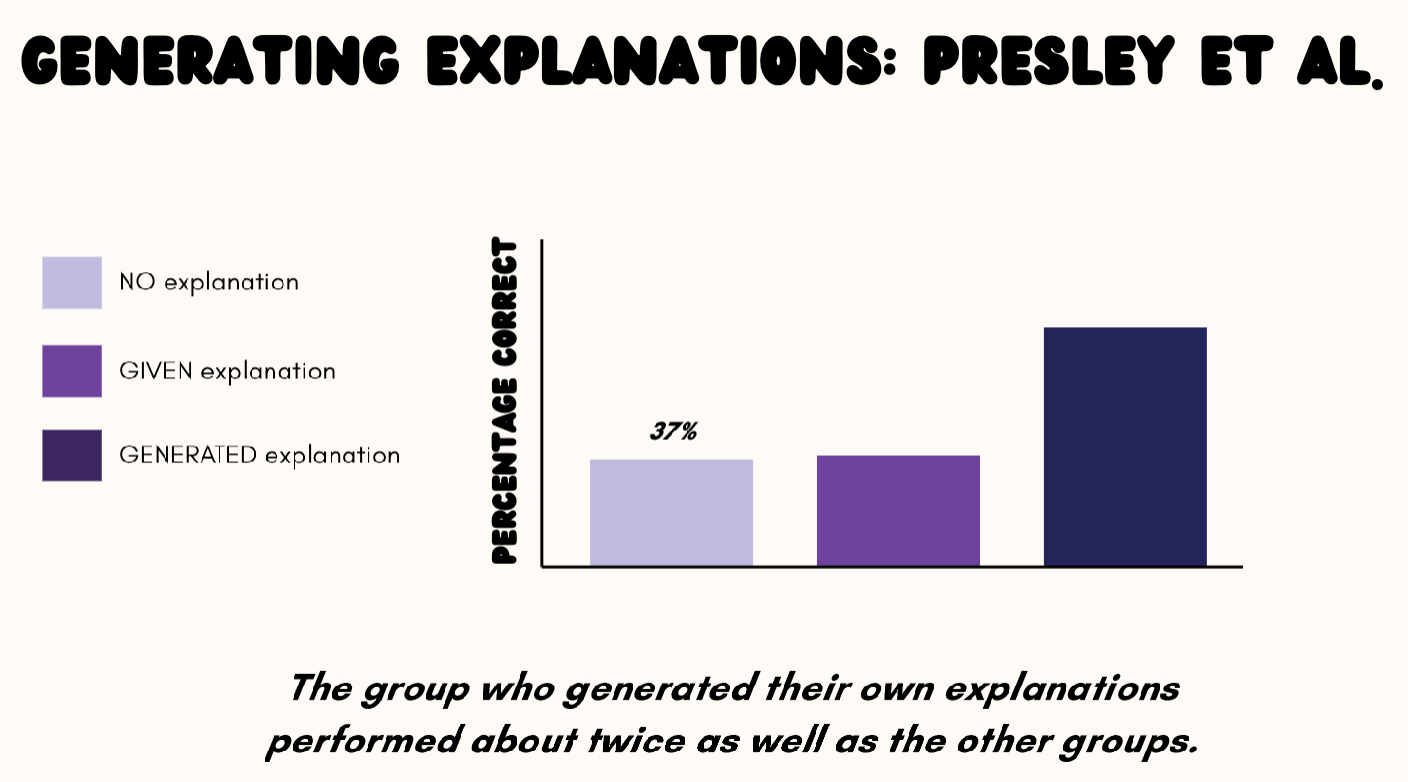
Strategy - interleaved vs blocked practice
Blocked = study 1 topic until mastery, then move until the next, etc
Interleaved = mix up problems, jump back and forth from topics
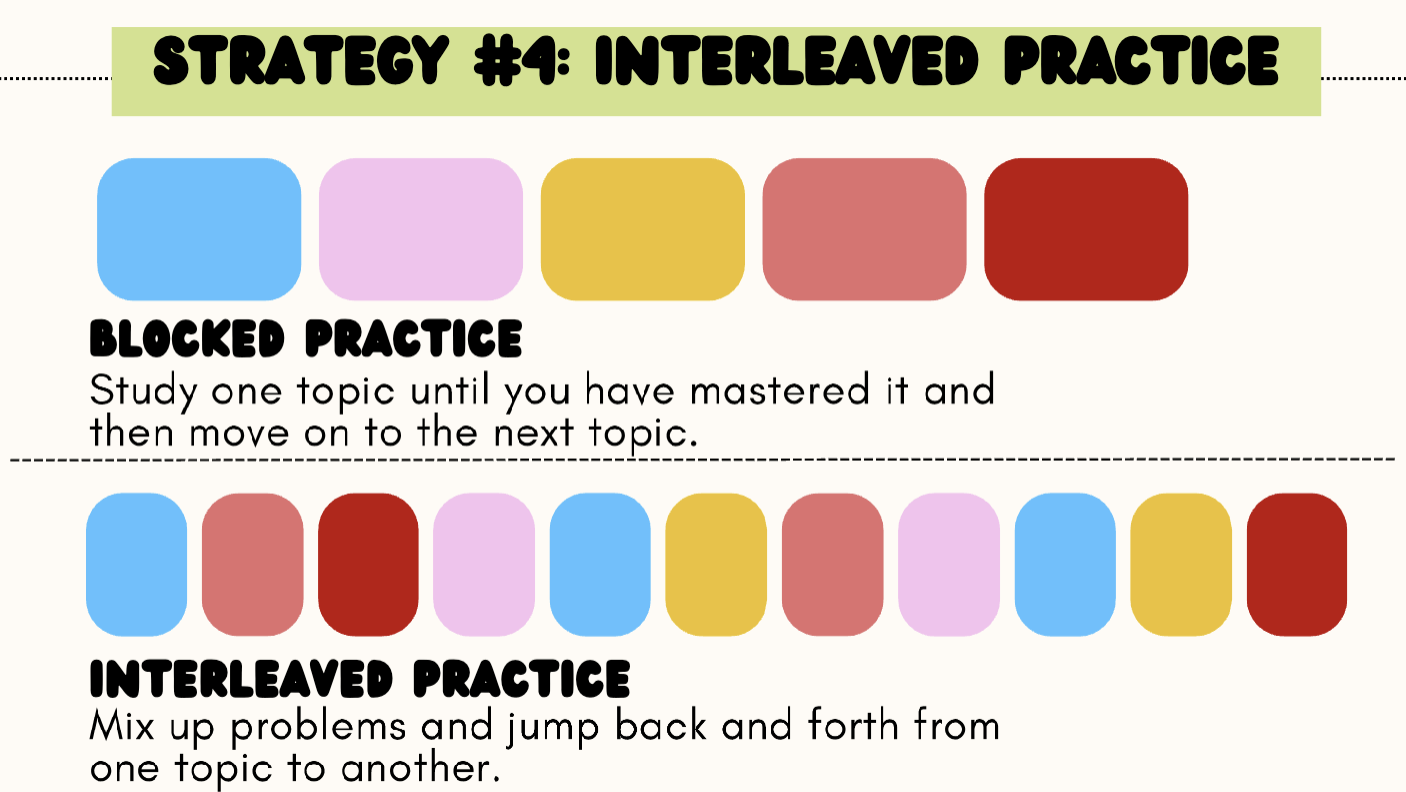
Strategy - interleaved practice + experiment
Roher & Taylor
People who did blocked method did better in practice than interleaved, but those who did interleaved method performed better on exams
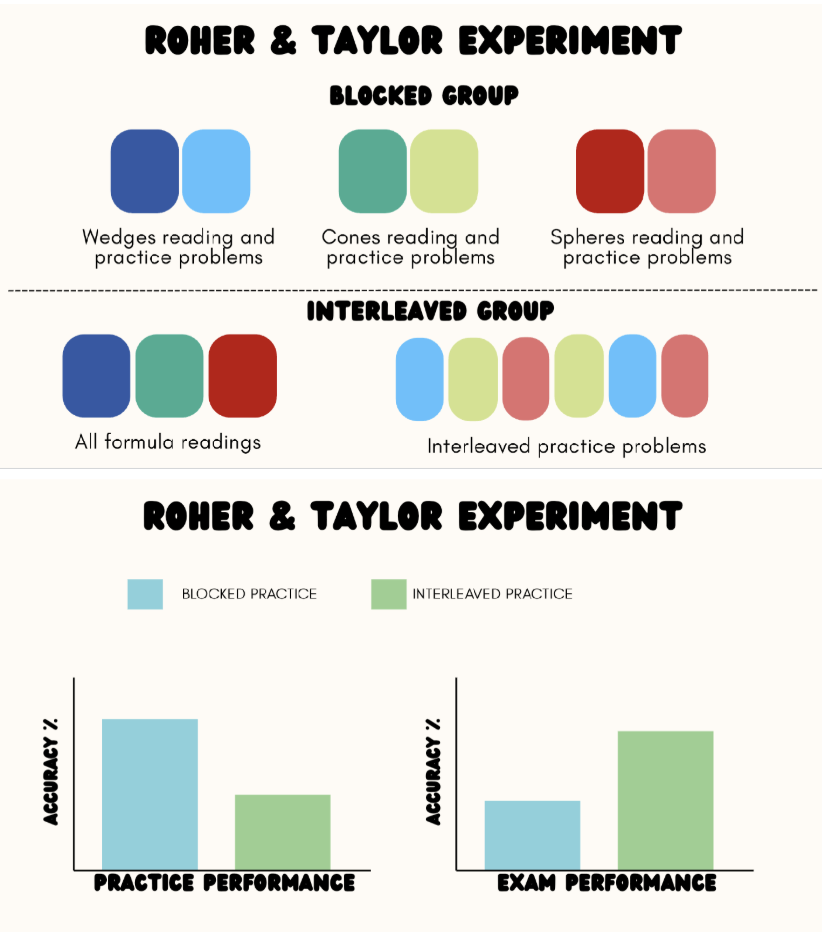
Strategy - distributed practice (SPACING) + experiment
Spread out study over time with breaks
Bahrick experiment
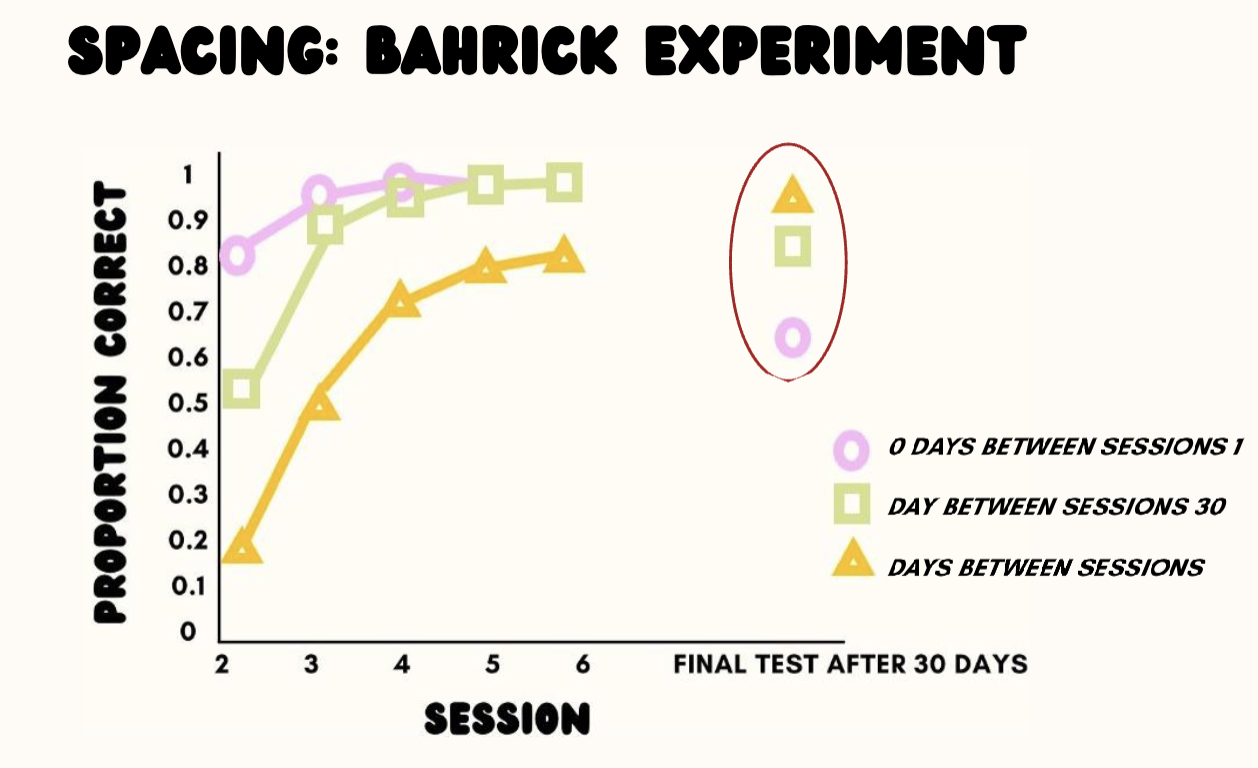
Strategy - testing
One of the most effective methods
Butler experiment
Study passage:
Group 1 - re-study half the passages
Group 2 - test on half the passage
Then, both test on the passages after a week
Strats - don’t just reread; friend can quiz, make flashcards, use Cornell note-taking system
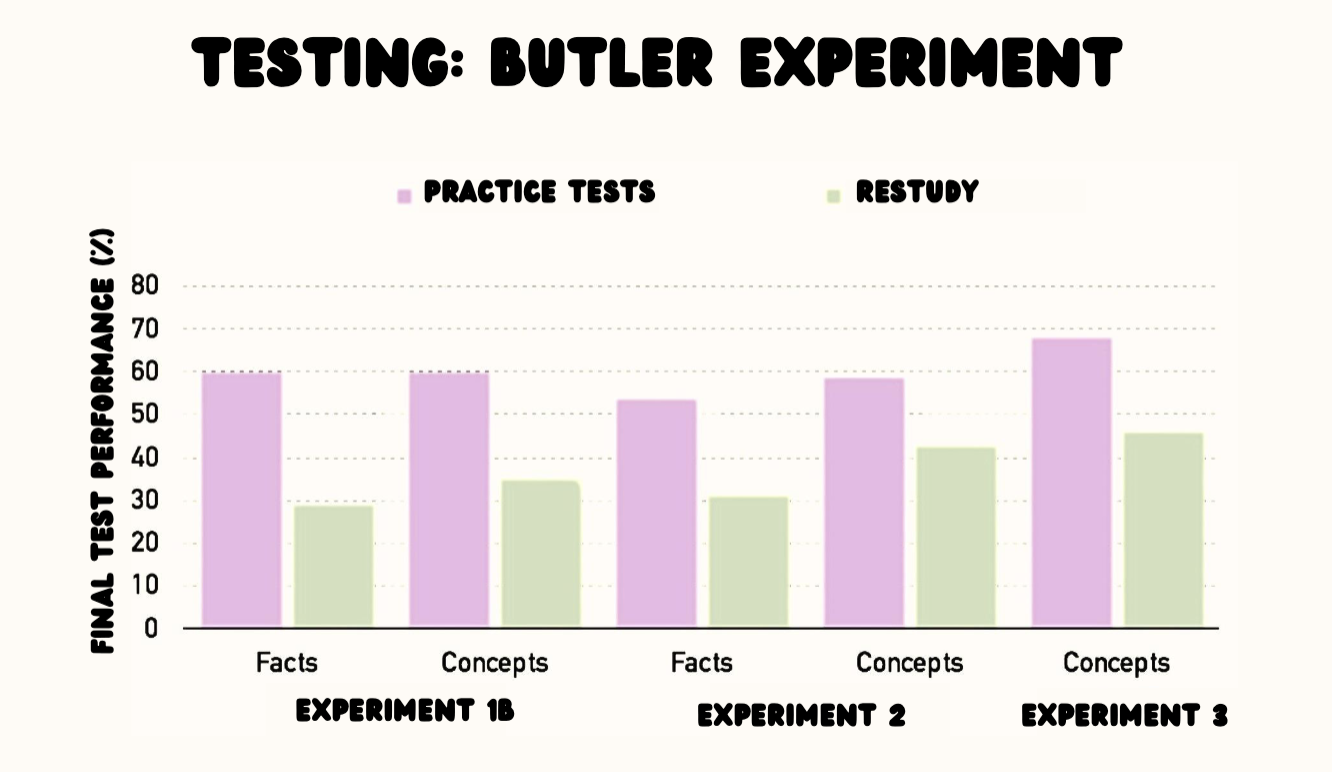
Study strats summary
LOW EFFECTIVE: Highlighting and Rereading
MEDIUM EFFECTIVE: Questions and Interleaving practice
HIGH EFFECTIVE: Distributed practice and Testing
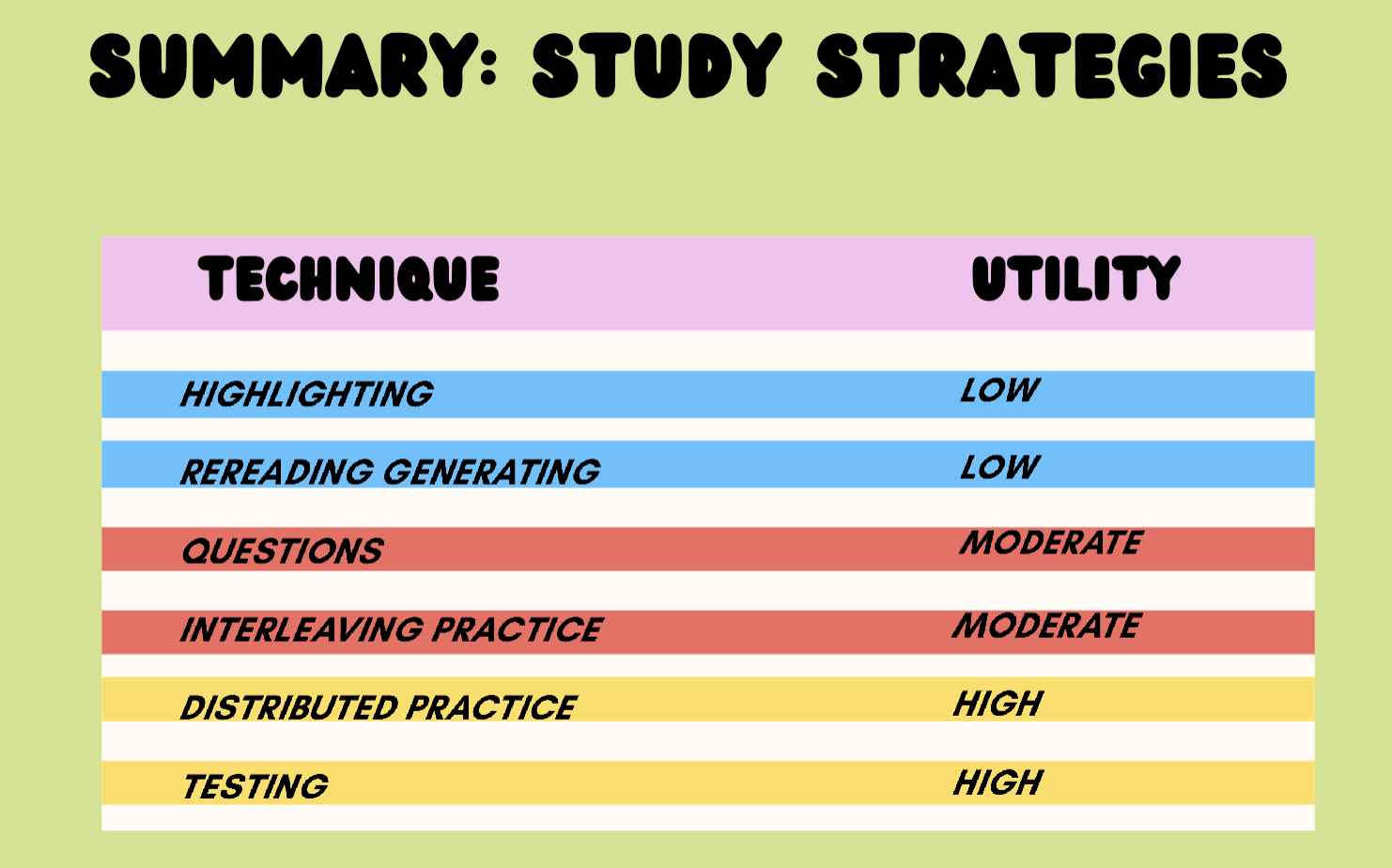
Simon and Bjork
RANDOM vs blocking on keyboard patterns
PREDICTION
Random group would have more errors than Blocked groups
RELAITY
Random made more mistakes at first, but had almost equal performance as Blocked on 6th practice session
RANDOM MADE WAY LESS MISTAKES WHEN TESTED LATER
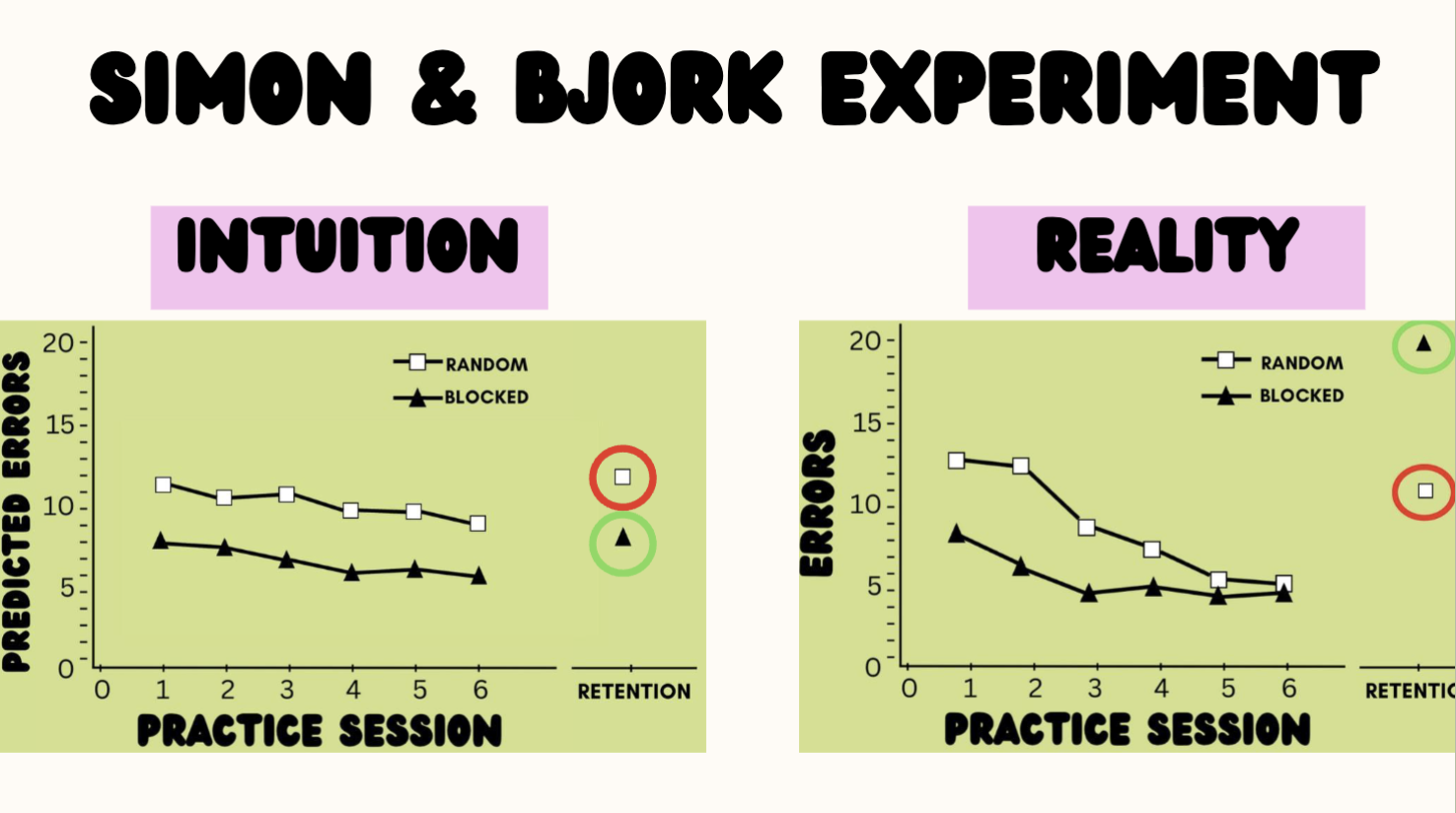
Fowler and Barker
Test effect of highlighting on performance
G1 - reads
G2 - reads and highlights
G3 - reads highlighted
RESULTS: Highlighting didn’t help
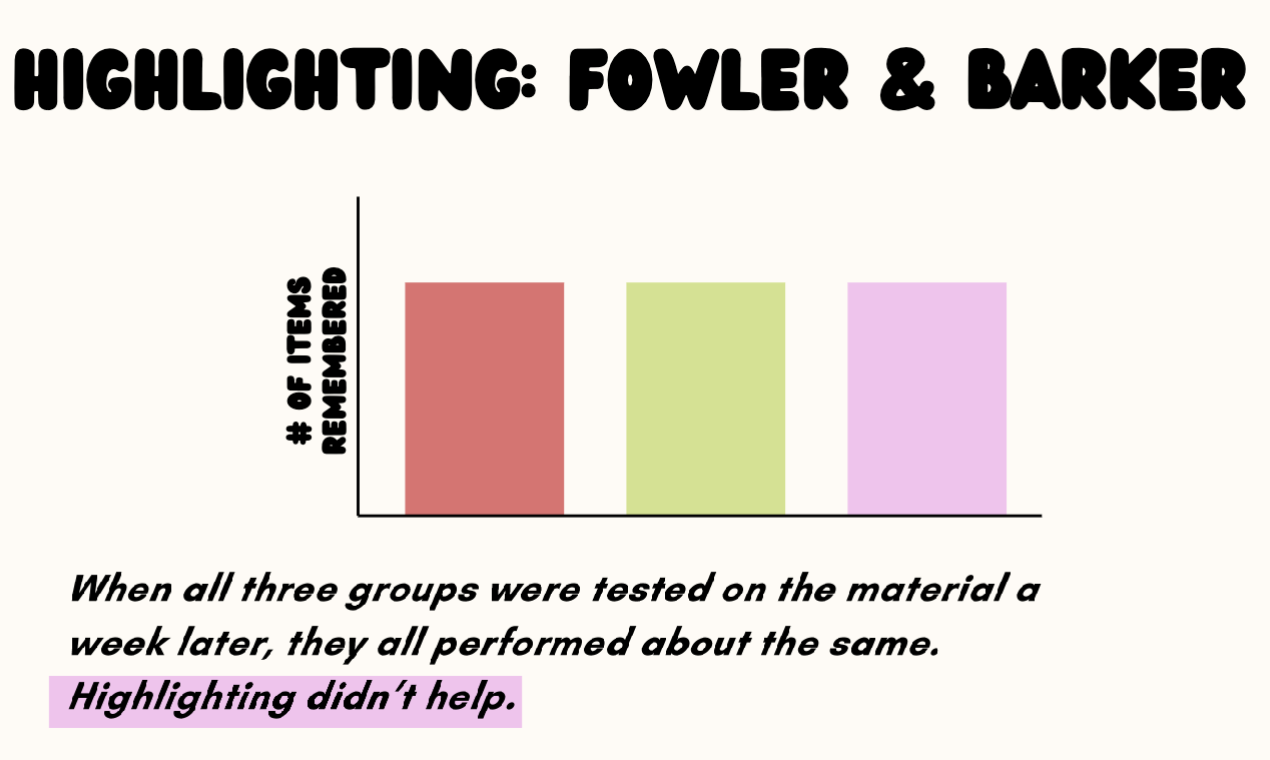
Peterson
Underlining
G1 underline marked article
G2 underline unmarked article
G3 doesn’t underline
RESULTS 1:
Basic factual material test - all groups performed the same
RESULTS 2:
On questions that required drawing inferences, G1 underlined marked did the worst of all
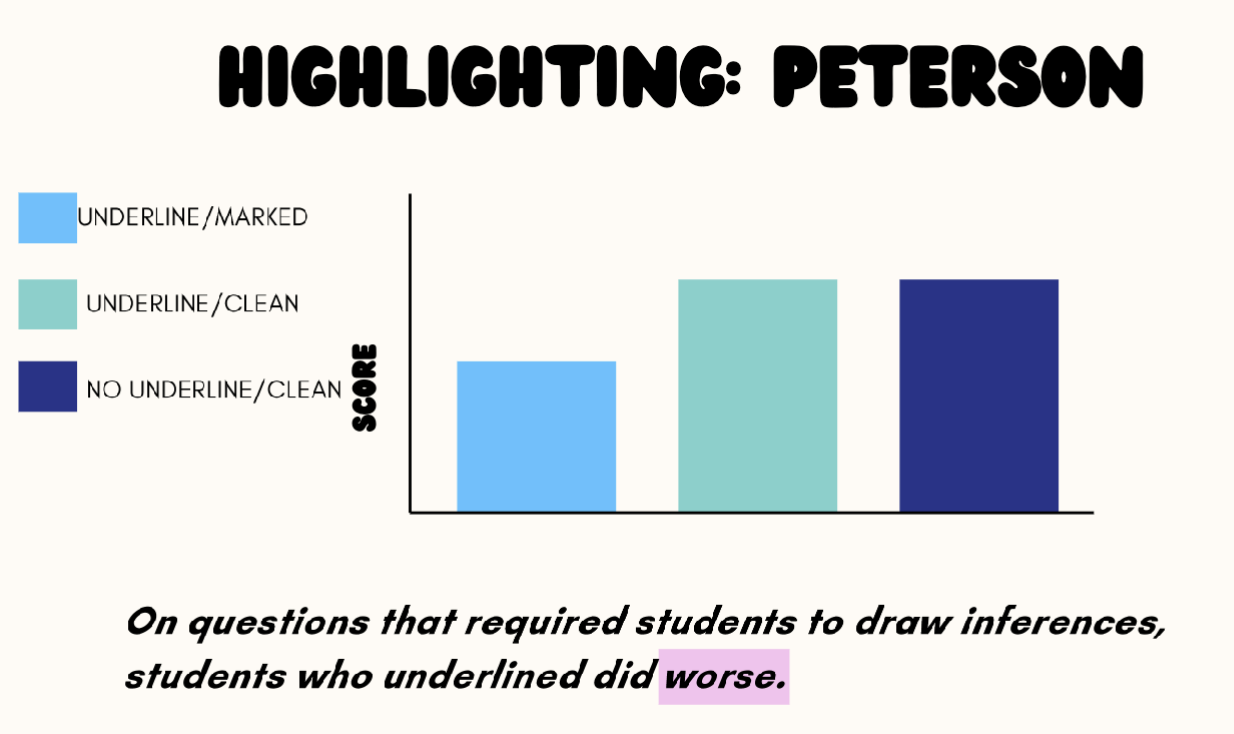
Rothkopf
Rereading
Read once, Read twice, Read three times, Read 4 times
Small improvement between reading once versus reading twice (rereading), but reading more than 3 times shows little to no improvement
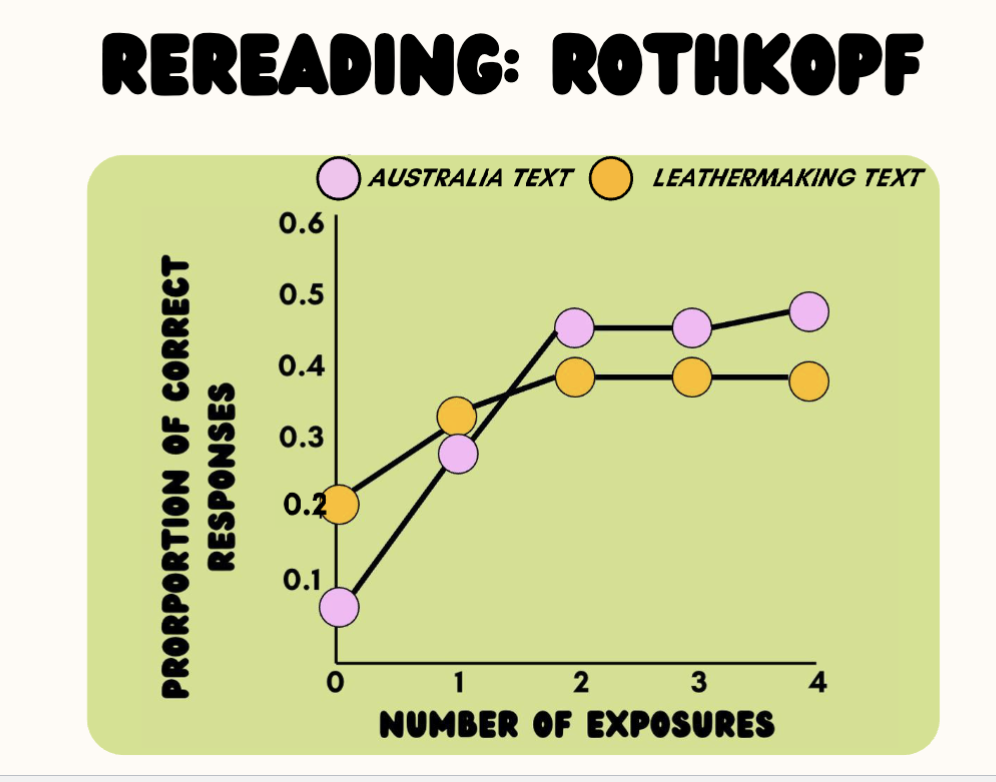
Presley Et Al.
Generating explanations
G1 no explanation, G2 given explanation, G3 generated their OWN explanation
RESULTS
G1 No and G2 Given performed about the same, G3 those who made their own explanation did far better
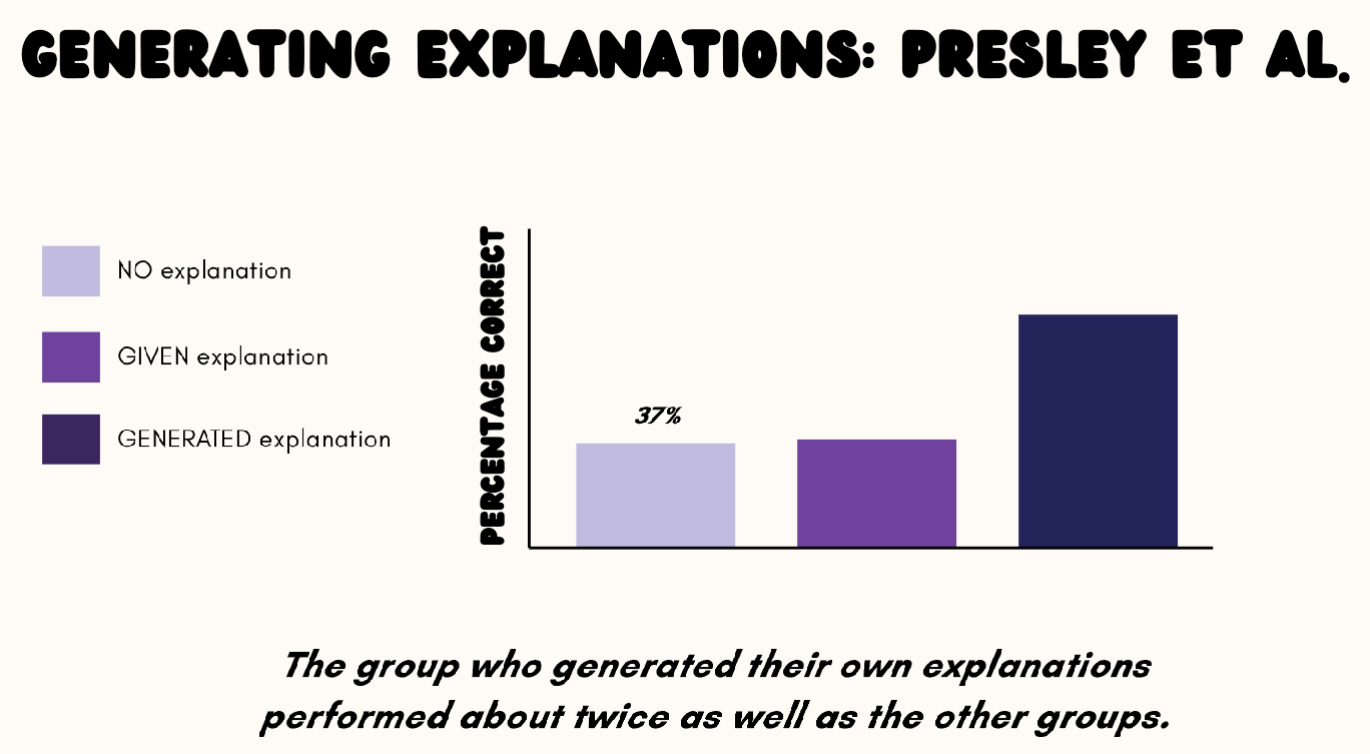
Roher and Taylor
Interleaving
Blocked group - studied formulas then did problems, move on to next one
Interleaved - read all formulas and interleaved problems
RESULTS
Blocked did far better than Interleaved in practice
Interleaved did far better than Blocked in exams
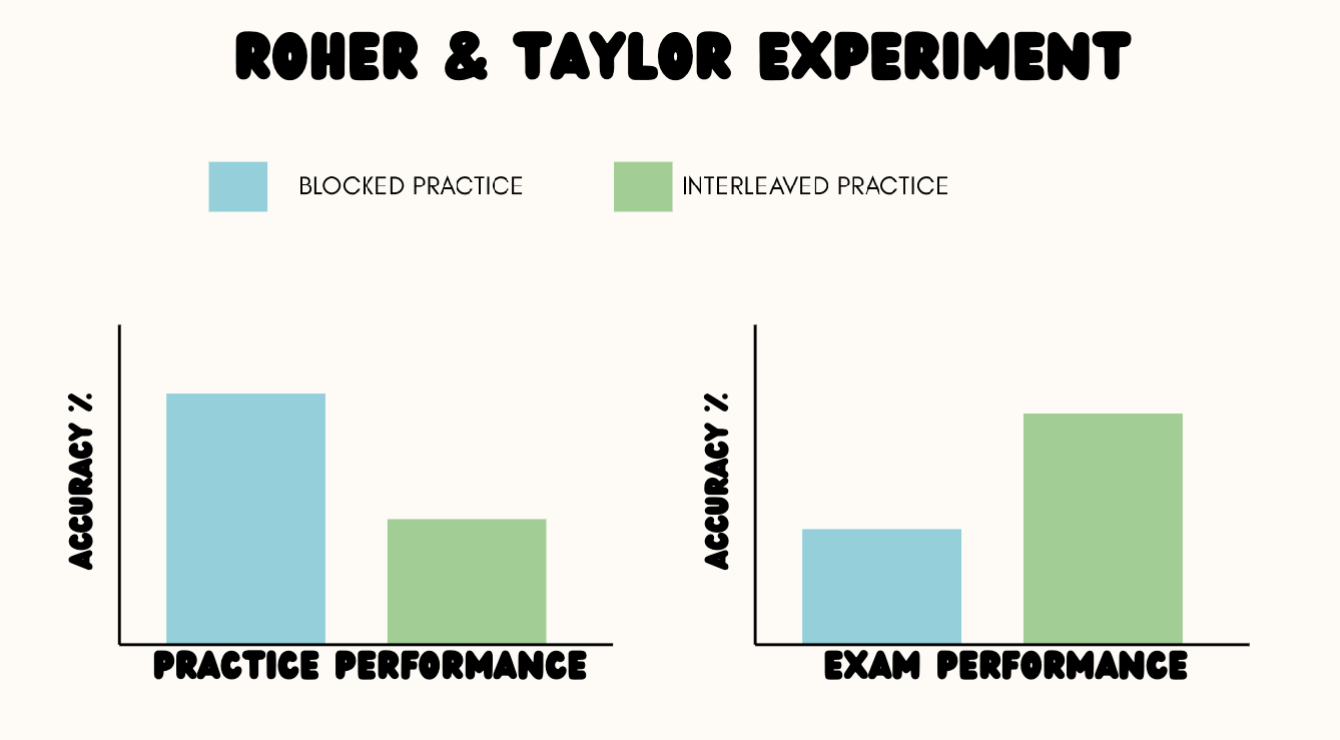
Bahrick Experiment
Spacing study with breaks
G1 - 6 study sessions back to back in one day
G2 - 6 study sessions one day apart
G3 - 6 studies sessions a month apart
RESULTS
G1 0 Days did best earlier on, tied with G2 1 Day in later study sessions. G3 30 Days in between did worst in all study sessions
RESULTS 2:
G3 30 Days did best on exams, then G2 1 Day, then G1 0 days
SPACING = BETTER LONG - TERM LEARNING
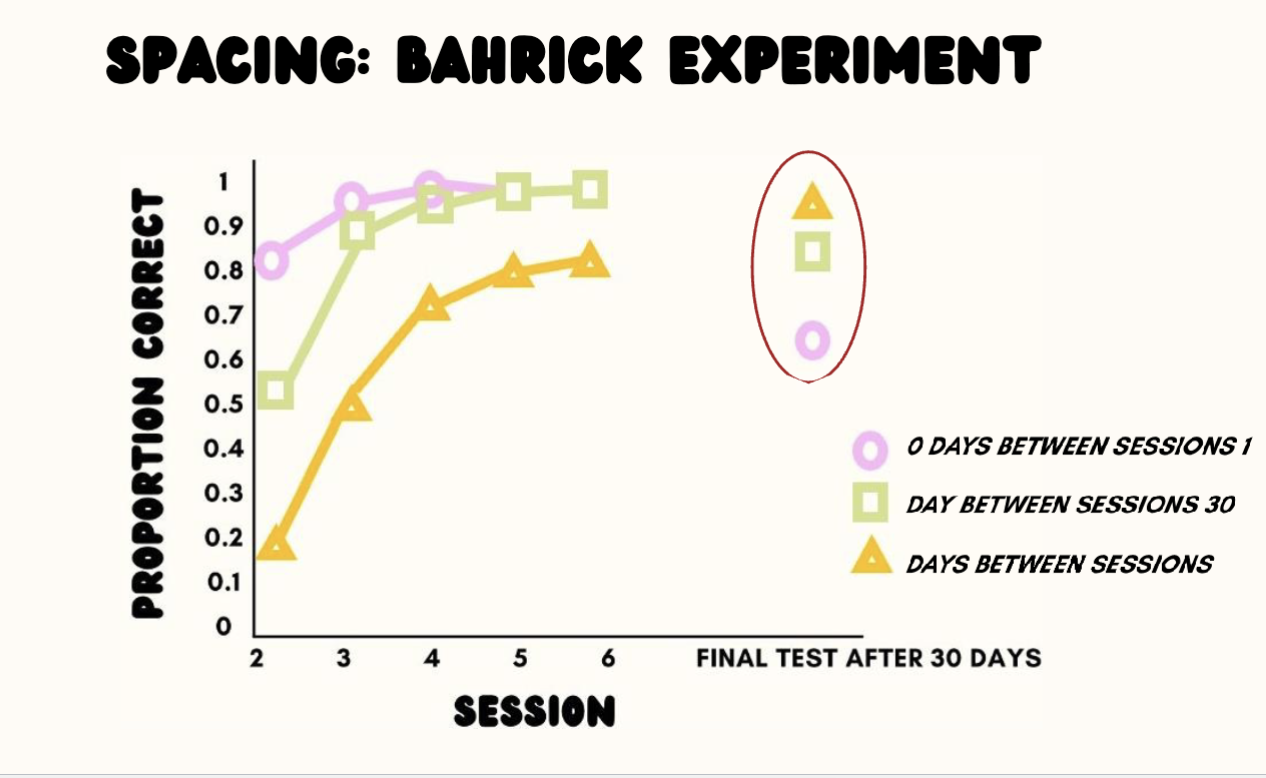
Butler
Testing yourself
G1: Read text, test on half of the passages → test on all the passages after a week
G2: Read text, re-study half of the passages —> Test on all passages after a week
RESULTS
G1 Practice test group did better on everything
